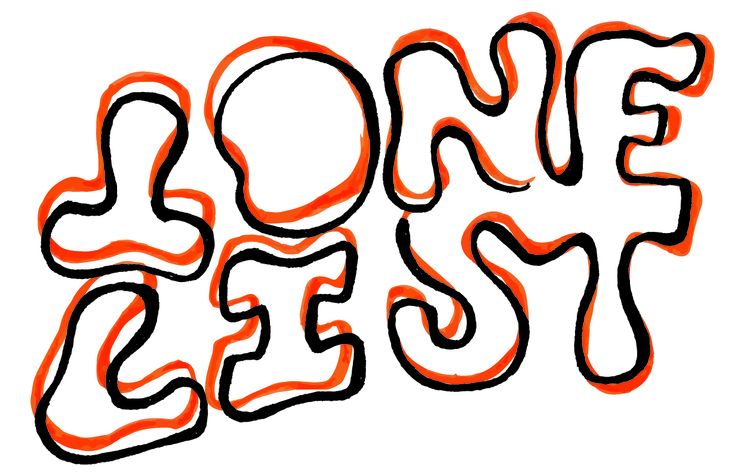The same questions, asked to different improvisers in Perth. Credit for the idea, and some of the questions, goes to the amazing Addlimb archive.
Photo by Josh Wells Photography.
1. What instrument or equipment do you use to improvise, and what is your relationship with this equipment/instrument?
From a very young age, before I was even tall enough to play it, I was drawn to the double bass. There was something about the tone and depth of sound that I really loved. I was very lucky to be surrounded by music as a child. My parents would take me to all sorts of concerts from ACO to Perth Jazz Society. I started playing violin from the age of 3 and it seemed very natural to progress to the bass as I grew.
Today, I’m still discovering so much about the instrument and really love exploring the vast number of sounds and range of techniques that are possible on such a large stringed instrument.
2. What led you to improvised music?
After learning classically for a number of years I found myself wanting to explore new styles of music and became interested in jazz. Discovering how to improvise over chords and playing jazz tunes in small ensembles was new and exciting. While many of my early influences stemmed from developing an understanding of the history of jazz I started to become more and more interested in the distinct sound coming out of Australia’s jazz community and really wanted to contribute in some way to this sound. Moving to Melbourne was a great experience, being in a new city and surrounded by a new group of musicians made me feel free enough to experiment and try new things. Playing more freely and openly and collaborating with artists of other disciplines became the new exciting thing. It was a similar experience coming back to Perth and meeting a whole new community of musicians interested in improvised music and it’s exciting to be a part of such an open and welcoming group of people.
3. What keeps you improvising? What do you think makes this music important, either personally, socially, politically, etc.
I see improvised music as an opportunity to interact and communicate with people and create something out of this interaction. I enjoy the spontaneity and sense of playfulness of this and try to not think too much into it but feel that music as with art has purpose if it can make someone question or think of things a little differently.
4. What are your feelings on the relationship between planning and spontaneity in improvisation?
I’m not too opinionated on this. I would say that my views differ depending on the situation and who I’m playing with. In Lee/Jacobs/O’Connor we sometimes base our improvisations on an abstract narrative that gives some sort of direction and sets a general mood to start our improvisations. Sometimes I approach a solo performance by focusing on a particular technique or concept to develop and explore, I find this helps to create cohesion.
5. How do you evaluate or reflect upon improvisations you’ve played? How does the evaluation of a recording differ from the evaluation of a performance?
This is difficult. Often, I find that the way I perceive a performance ends up being completely different to how I find it upon listening back to it. I try to not dwell on a performance too much. I find it much more constructive to talk through ideas with everyone in a rehearsal setting and work through ways to improve the music there.
6. Do you think there is room for discursive (as opposed to non-discursive) thought in improvisation? Can discursive thoughts whilst playing be productive rather than distracting, and if so, do you have an idea as to when this might be the case?
I’d be interested to hear what other improvisers think about this. I find it extremely difficult to go through a performance without thinking at all but do aspire to minimize this as much as possible. There is a danger in over thinking whilst playing as I find that it really limits my playing. I do think that there is room for discursive thought in some instances though, especially when thinking about the overall architecture or structure of an improvisation.
7. Can you name three albums/pieces/experiences that inspired you to start improvising, and three that are currently inspiring you?
- Ornette Coleman. Ornette’s music was probably the first freer sounding music that I heard. Charlie Haden’s playing always resonated with me and has had a very strong influence on my sound and approach to playing.
- Miles Davis, Plugged Nickel Concert. I started to be drawn to more open playing in a jazz context and was particularly inspired by the level of interaction and freedom that Miles’ 60s quintet had whilst playing over jazz standards.
- Many, many Australian musicians. Dave Ades, Allan Browne and Zac Hurren to name a few.
- I have been getting more into solo playing lately and am focusing on exploring more extended techniques and sounds on the bass. Two players who I’ve been really getting into are Mark Dresser and Mike Majkowski.
- I think musically, I draw just as much inspiration from the people I’m surrounded by and playing with as I do from listening to recordings. The Perth improvising community has been doing lots of great things and there are constantly interesting gigs, workshops and events to be involved in.
- I am also inspired by more and more wide ranging things these days. I often find visual experiences to be just as inspiring as musical ones.
Lee/Jacobs/O'Connor at Success Sounds.
Song for Charlie (Charlie Haden) by Djuna Lee
Question Time
Blind Spot


